Prioritize your mental well-being with our dedicated Mental Health resources. This page offers valuable insights and practical advice on maintaining and improving your mental health. From managing emotional challenges to fostering resilience and building a positive mindset, our expert guidance supports your journey toward mental wellness. Explore our resources to enhance your emotional health and embrace a more balanced and fulfilling life.
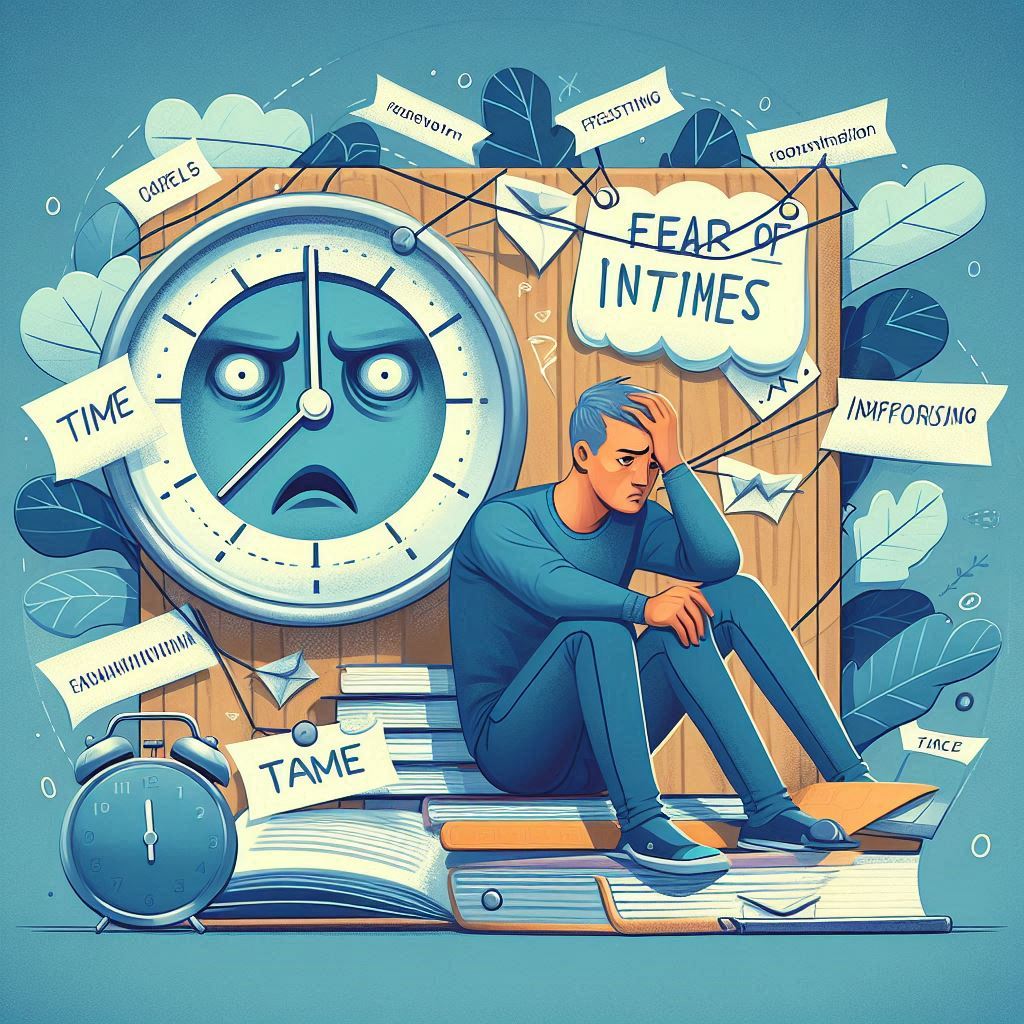
Are You Afraid of not Achieving Perfect? : The Real Reason You’re Procrastinating.
Struggling with procrastination often stems from a fear of imperfection. When we delay tasks, it’s frequently because we’re anxious about not meeting our own high standards or achieving a flawless result. Understanding this fear can be the first step in overcoming procrastination and finding more effective ways to approach our tasks.

Is Burnout Clouding Your Decision-Making? Strategies to Overcome It
Burnout can severely impair decision-making abilities, leading to decreased productivity and overall dissatisfaction. Addressing burnout involves recognizing its signs, implementing stress management techniques, and making lifestyle adjustments to restore balance. Effective strategies can help you regain clarity and improve decision-making skills.

Long Working Hours, Extended Shifts, and Worker Fatigue: Strategies to Reduce Workplace Exhaustion
Long working hours and extended shifts can significantly contribute to workplace exhaustion, impacting both productivity and employee well-being. Addressing this issue involves implementing effective strategies to manage fatigue, such as optimizing work schedules, encouraging regular breaks, and promoting a healthy work-life balance. By prioritizing these measures, organizations can enhance overall employee health and performance.

Are you also addicted to Social Media? Be Careful! It leads you towards Mental Illness
In today’s digital age, social media has become a central part of our lives, but its overuse can have serious consequences for mental health. Constant exposure to curated content and comparison can lead to anxiety, depression, and other mental health issues. This article explores the risks associated with social media addiction and offers insights on how to manage and mitigate its impact on your mental well-being.

Speech Delays, Behavioral Changes, and Cognitive Shifts in Children: How They Impact Mental Health?
Speech delays, behavioral changes, and cognitive shifts in children can significantly affect their mental health and overall development. Early identification and intervention are crucial for addressing these challenges and supporting the child’s emotional and psychological well-being. This article examines the impact of these developmental changes on mental health and provides guidance on how parents and caregivers can effectively support their children through these transitions.

Protecting Your Mental Health from Cybercrime: Online Safety Tips.
In the digital age, protecting your mental health from cybercrime is increasingly important. The stress and anxiety caused by online threats can take a significant toll on your well-being. This article provides practical tips for safeguarding your mental health by enhancing your online security and managing the psychological impact of cybercrime. Learn how to create a safer online environment and reduce the risks associated with digital threats.
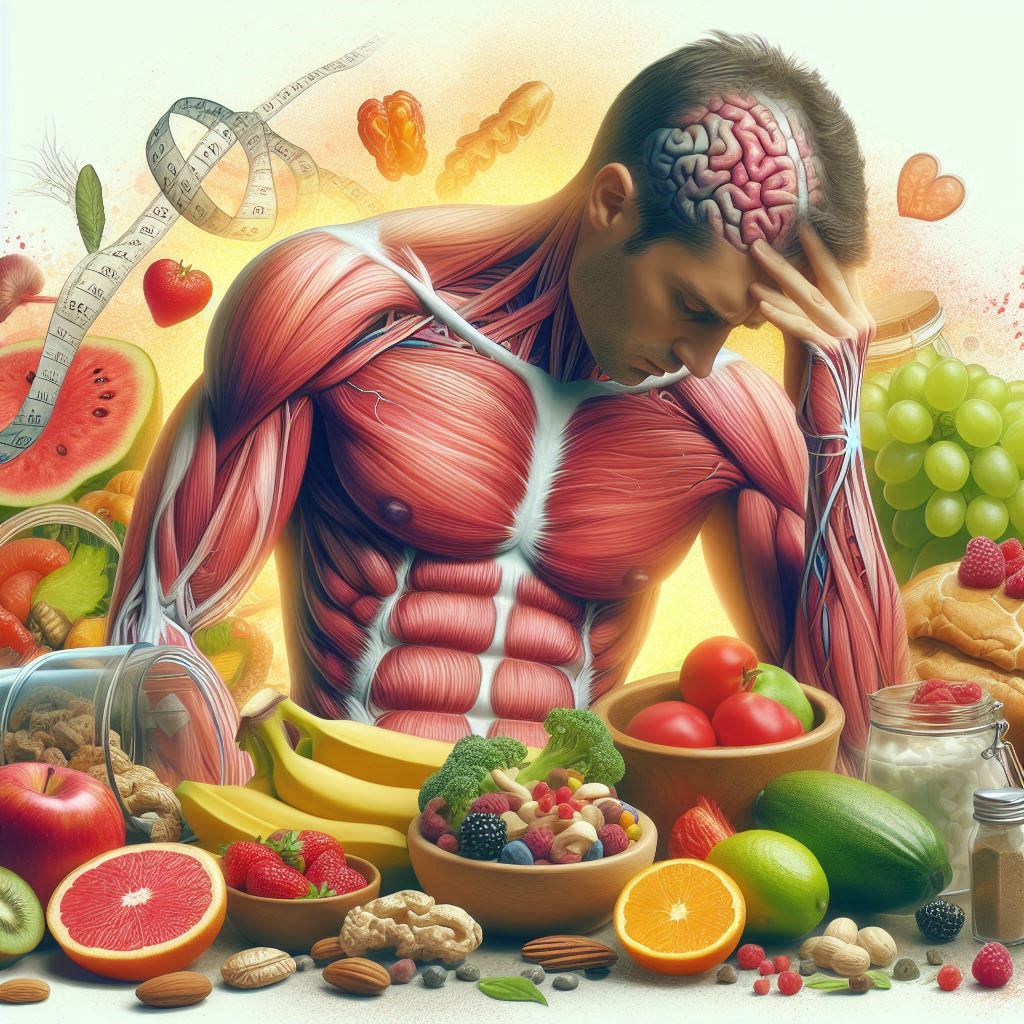
Your Diet Matters: How Nutritional Deficiencies Trigger Chronic Fatigue Syndrome
Your diet plays a crucial role in your overall energy levels and well-being. Nutritional deficiencies can significantly contribute to the development of Chronic Fatigue Syndrome (CFS), a condition characterized by persistent, debilitating fatigue. This article explores how inadequate intake of essential nutrients can lead to CFS and provides insights into how proper nutrition can help mitigate its symptoms and improve quality of life.

Do you Experience Moods Swings or Fatigue after Childbirth? Why did this happen and what are these? Baby Blue & Post-Partum Guide
Many new mothers experience mood swings or fatigue after childbirth, commonly known as the “baby blues” or, in more severe cases, postpartum depression. These emotional changes are often caused by hormonal shifts, sleep deprivation, and the overwhelming demands of caring for a newborn. This guide explains the differences between baby blues and postpartum depression, offering insights and support for new mothers navigating this challenging period.

Work-Life Balance – How to Offset Stress? Why it is Important?
Achieving work-life balance is essential for managing stress and maintaining overall well-being. In today’s fast-paced world, work demands often overshadow personal life, leading to burnout and mental exhaustion. This article explores practical ways to offset stress by balancing professional responsibilities with personal time, and highlights why it’s crucial for long-term health, happiness, and productivity.

Why People get more Cranky by age? At What age people get more affected by Depression?
As people age, factors such as physical health issues, hormonal changes, and life circumstances like loneliness or loss can contribute to increased irritability or crankiness. Additionally, cognitive changes and reduced tolerance for stress can play a role. Depression often becomes more prevalent in older age groups, typically affecting individuals around middle age (40s-60s) and beyond. Understanding these factors can help in managing mental well-being as we age.

Beware! It is pushing you towards Mental Illness? Why Experts are worried about TikTok & Mental health Crisis?
Experts are increasingly concerned about TikTok’s impact on mental health due to its addictive nature and constant exposure to potentially harmful content. The app’s algorithm, which keeps users engaged for extended periods, can lead to feelings of anxiety, comparison, and low self-esteem, particularly among young people. Studies suggest that excessive use of social media platforms like TikTok may exacerbate mental health issues such as depression, stress, and attention problems, raising alarms about the long-term effects on mental well-being.

Does Your Mood Change with Seasons? A Guide to Seasonal Affective Disorder
Seasonal Affective Disorder (SAD) is a type of depression that occurs during certain seasons, usually in winter when daylight is reduced. People with SAD may experience mood swings, fatigue, and difficulty concentrating. Understanding the signs and exploring treatment options, like light therapy or lifestyle changes, can help manage this condition effectively.

How Your Brain Changes With Age: Understanding the Connection Cognitive Impairment and Mental Health:
As we age, our brain undergoes natural changes that can affect memory, thinking, and overall cognitive function. Cognitive impairment may develop, impacting problem-solving, decision-making, and daily activities. Understanding how aging affects brain health is essential for addressing mental health challenges, such as anxiety or depression, that often accompany cognitive decline. Maintaining a healthy lifestyle and engaging in mental exercises can help support brain function over time.

Understanding and Overcoming Barriers Mental Health Stigma among Senior Citizens
Mental health stigma among senior citizens remains a significant barrier to seeking help and support. Many older adults face challenges like isolation, depression, and anxiety but often hesitate to discuss these issues due to societal stigma or fear of judgment. Understanding these barriers is crucial for promoting open conversations, providing necessary resources, and encouraging seniors to prioritize their mental well-being.

Do you find Older Adults Depressed when Retired? Why this Happened? Impact of Retirement on Mental Health
Retirement can bring significant changes that affect the mental health of older adults, often leading to feelings of depression. This article explores the emotional challenges that arise during this life stage, including loss of routine, social isolation, and diminished purpose. By understanding these factors, we can better support older adults in navigating retirement positively and fostering their mental well-being.
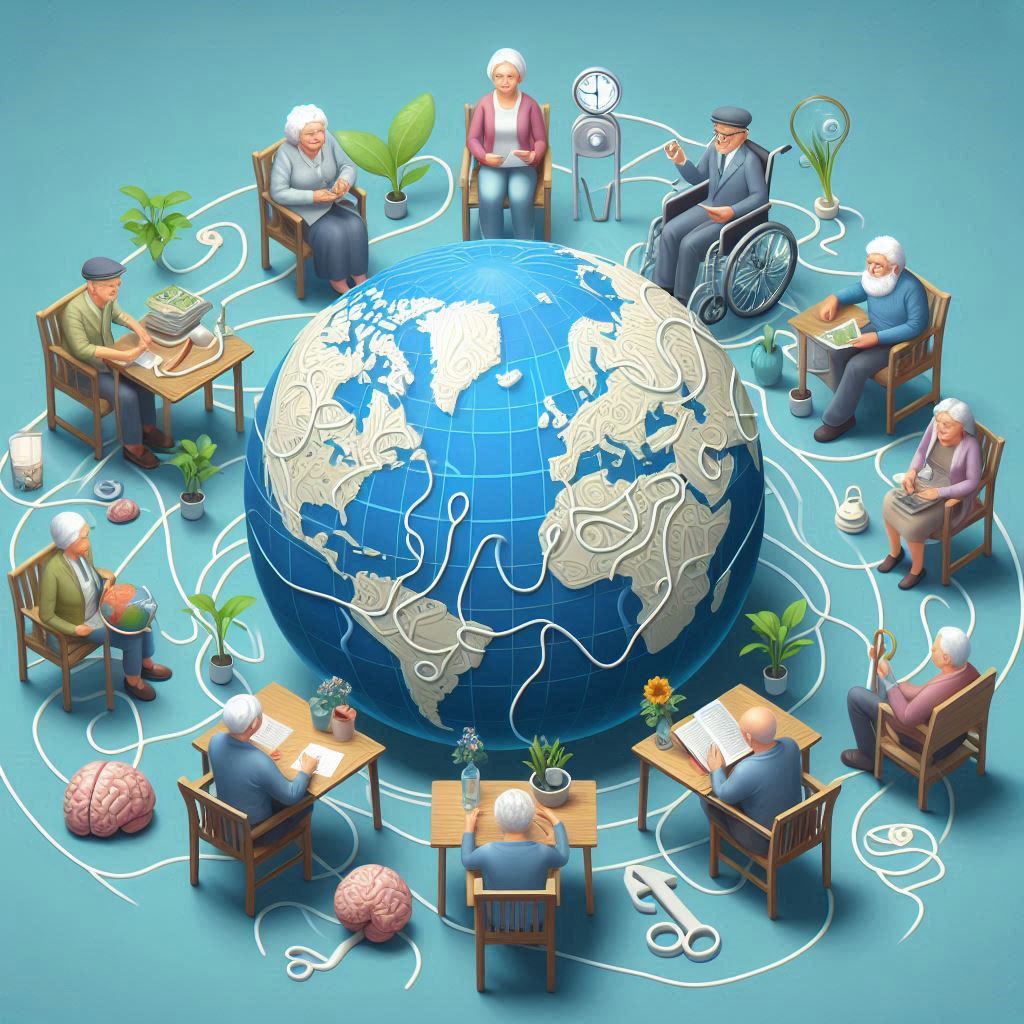
Aging around the World| Understanding Mental Health among Aging Populations in Different Cultures
As the global population ages, understanding mental health in diverse cultures becomes increasingly important. This article examines how various cultural attitudes, beliefs, and practices influence the mental health of aging populations. By exploring these cultural nuances, we can gain insights into the unique challenges and support systems for older adults worldwide, fostering a more inclusive approach to mental health care and promoting well-being across different communities.
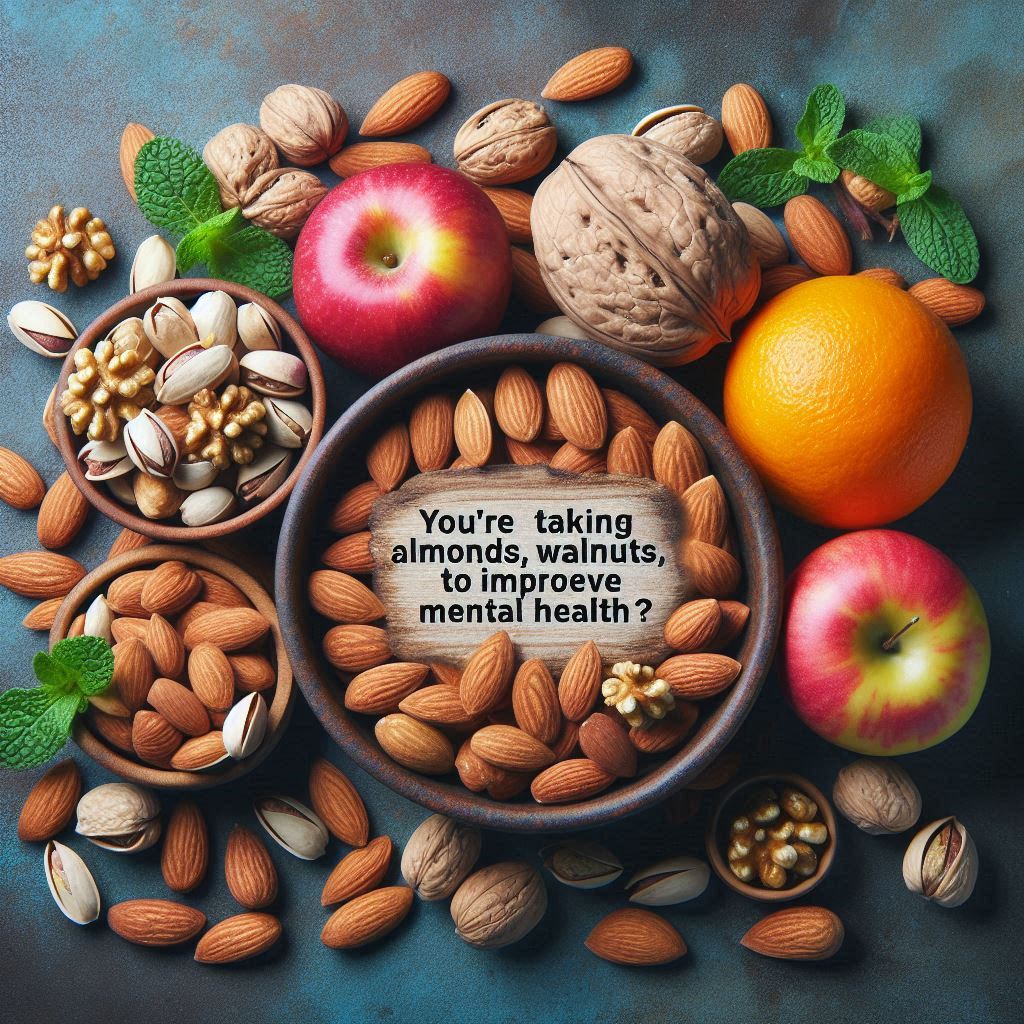
You’re taking Almonds, Walnuts & Pistachios for Physical Health? Let’s find out how they’re affective to improve Mental Health?
Almonds, walnuts, and pistachios are not only nutritious snacks but also beneficial for mental health. This article explores how these nuts support cognitive function and emotional well-being. Rich in essential fatty acids, antioxidants, and vitamins, they can enhance brain health, reduce anxiety, and improve mood. By incorporating these superfoods into your diet, you can nurture both your physical and mental health, paving the way for a healthier, happier life.

Lavender – A Pain Reliever: How Lavender is beneficial for Mental Health Disorders?
Lavender is renowned for its calming properties and potential benefits for mental health disorders. This article delves into how lavender can alleviate anxiety, depression, and stress through its soothing aroma and therapeutic uses. Rich in antioxidants and anti-inflammatory properties, lavender may help improve sleep quality and enhance overall emotional well-being. Discover the various ways to incorporate lavender into your routine, from essential oils to herbal teas, and unlock its healing potential for a more balanced mind.
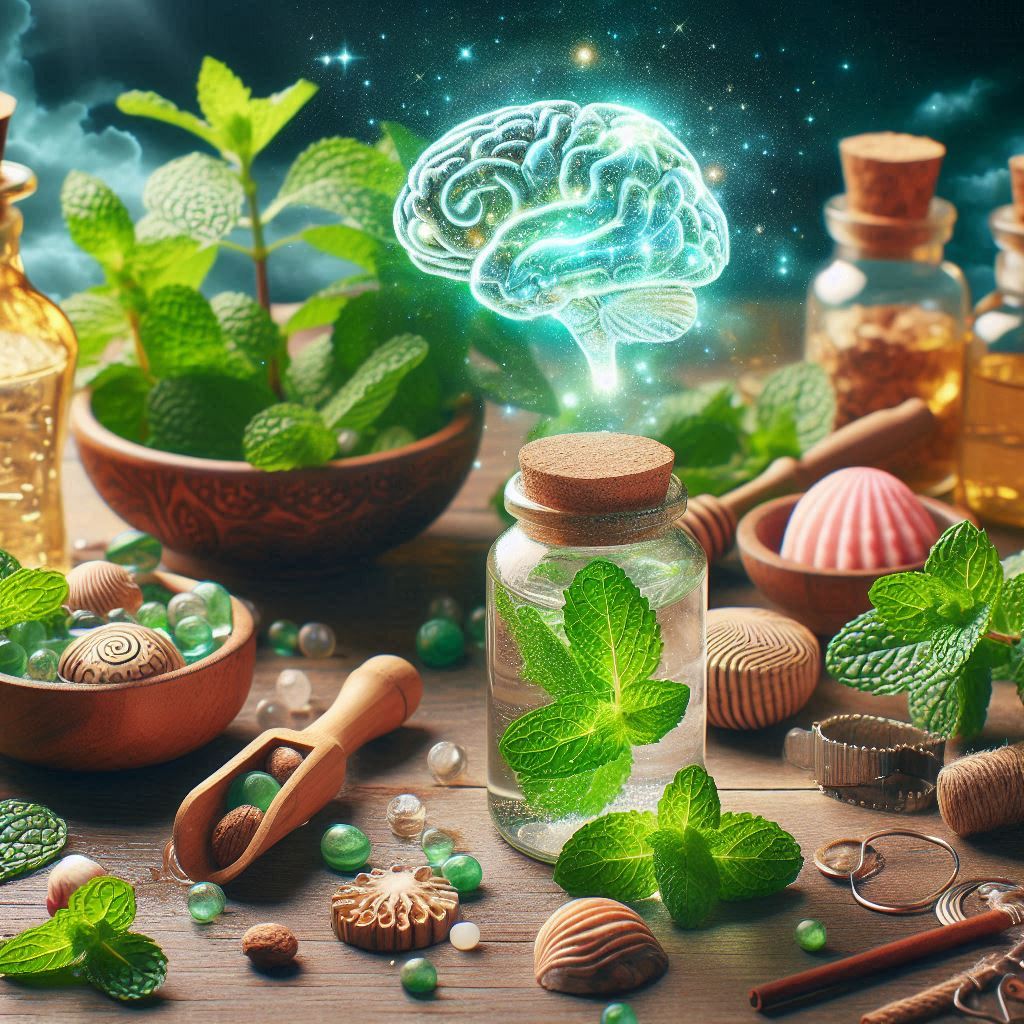
Are you aware of Peppermint’s Benefits? Let’s have a look on How Magically it Improves Mental Health?
Peppermint is more than just a refreshing flavor; it also offers remarkable benefits for mental health. This article explores how peppermint can enhance cognitive function, reduce stress, and uplift mood. With its invigorating aroma and potential to improve focus, peppermint is a natural remedy worth considering for those looking to boost their mental well-being. Learn how to incorporate peppermint into your daily life for magical effects on your mental health.
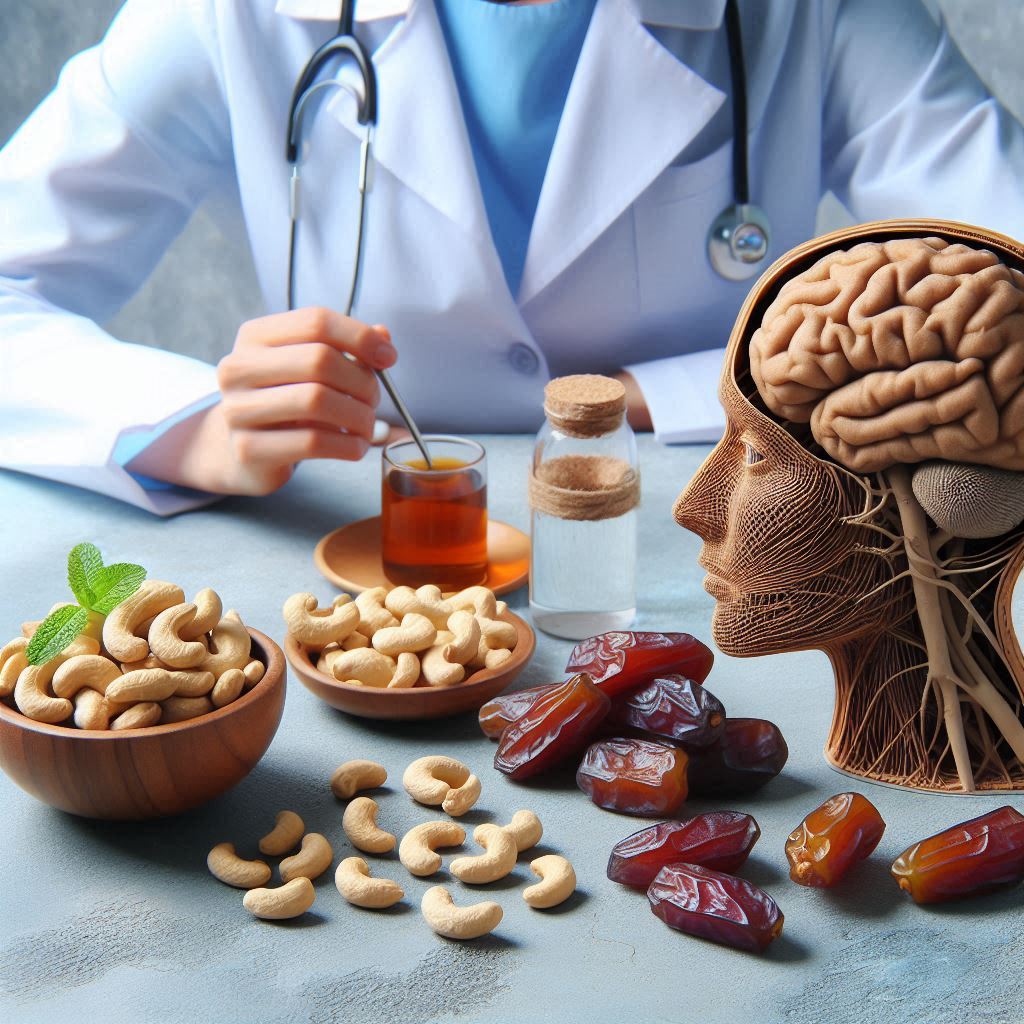
Mental Health with Diet Impact of Dates & Cashews on Mental Health
Exploring the connection between diet and mental health, this article focuses on the benefits of dates and cashews. Rich in essential nutrients, dates provide a natural energy boost and contain antioxidants that may help reduce anxiety. Meanwhile, cashews are packed with magnesium, which is known to support brain health and improve mood. Discover how incorporating these nutrient-dense foods into your diet can enhance mental well-being and contribute to a more balanced emotional state.
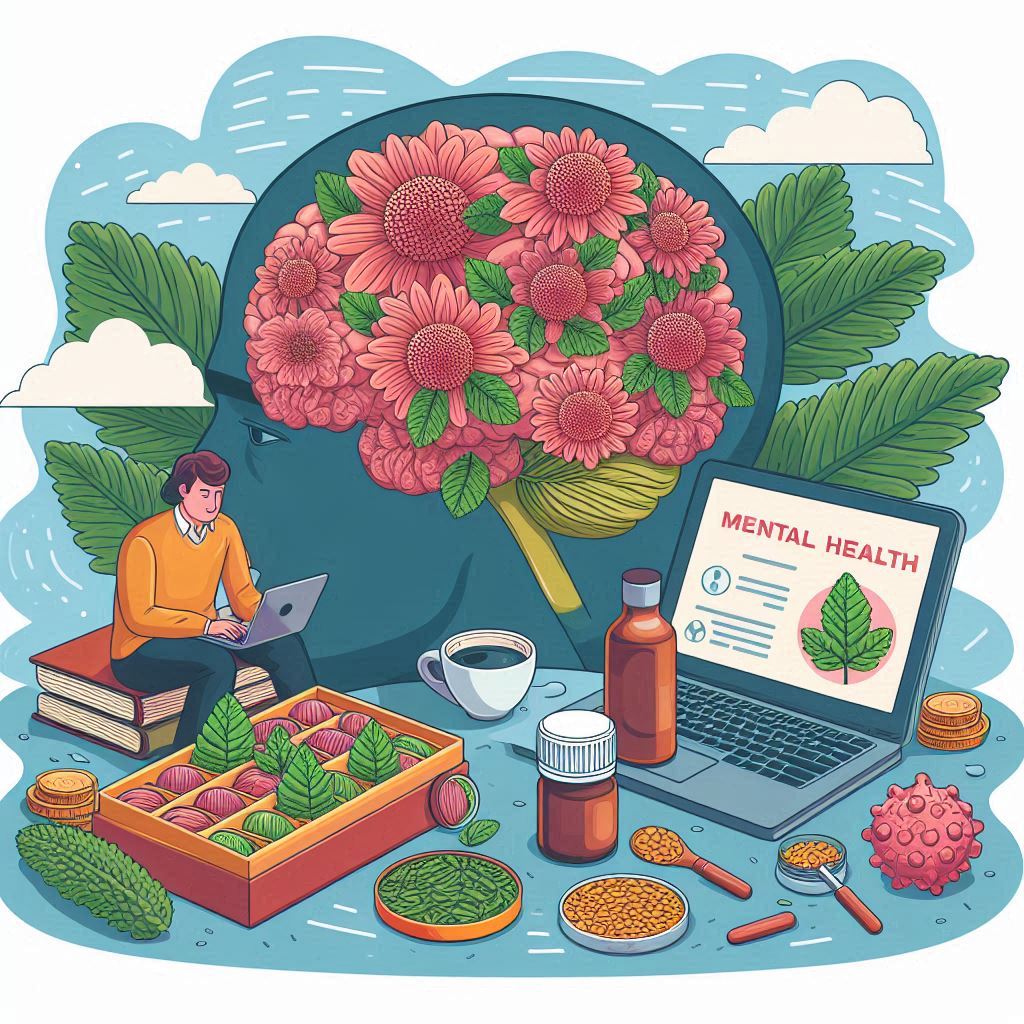
How to Cope Mental Health with Herbs? Exploring the Impact: Rhodiola Rosea, Ginkgo Biloba & Mental Health
This article delves into the mental health benefits of herbal remedies, specifically focusing on Rhodiola Rosea and Ginkgo Biloba. Rhodiola is known for its adaptogenic properties, helping to combat stress and fatigue while enhancing mood and cognitive function. Ginkgo Biloba, on the other hand, is praised for improving memory and concentration by boosting blood flow to the brain. Explore how these powerful herbs can be integrated into your wellness routine to support mental health and foster resilience against life’s challenges.

Combining Herbs & Dry Fruits What are the Outcomes? Secure Mental Health with Nutrition
Discover the transformative power of combining herbs and dry fruits to bolster mental health. This article delves into the enriching benefits of pairing nutrient-dense dry fruits like almonds and pistachios with renowned herbs such as ashwagandha and ginseng. Learn how this dynamic duo can enhance cognitive function, alleviate stress, and elevate your mood.

Mental Health and Diabetes: Strategies for Effective Management and Thriving
In today’s world, managing diabetes goes beyond just monitoring blood sugar levels; it also involves addressing the mental health aspects that can significantly impact overall well-being. This article explores effective strategies for managing the psychological challenges associated with diabetes, including stress, anxiety, and depression. By emphasizing the importance of a holistic approach—integrating self-care, emotional support, and lifestyle changes—readers will discover practical tools to thrive both mentally and physically while navigating their diabetes journey.

Navigating the Digital Playground: Mobile Technology’s Role in Early Childhood Development
Navigating the intersection of mobile technology and early childhood development reveals a complex landscape of benefits and challenges. While mobile devices can foster cognitive skills and creativity through interactive learning apps, they also pose risks such as excessive screen time and diminished face-to-face interactions. Recognizing the dual nature of technology’s impact on young minds is crucial.

Cognitive Growth or Decline? Examining the Long-Term Effects of Mobile Technology on Kids
The long-term effects of mobile technology on children’s cognitive development are a subject of growing concern and interest. While technology can enhance learning and provide access to valuable information, there is also a risk of cognitive decline associated with excessive use. This article examines the complex relationship between mobile device usage and cognitive growth, highlighting the potential benefits of educational content alongside the dangers of distraction and reduced attention spans.
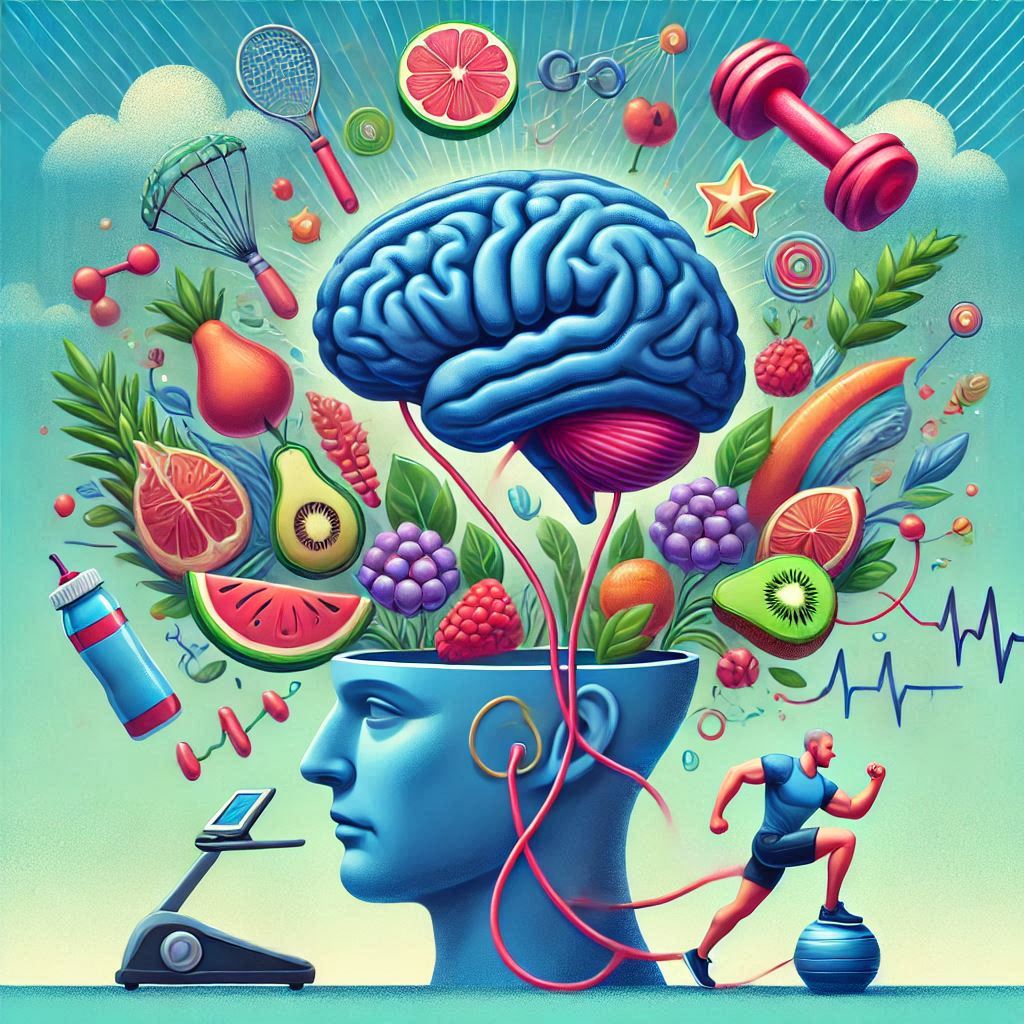
Brain Boosters: How Exercise Transforms Your Mind and Mental Health
The connection between physical activity and mental health has gained significant attention in recent years, with research revealing that exercise can be a powerful tool for improving mental well-being. While physical activity is commonly associated with cardiovascular health, weight management, and overall fitness, its profound effects on mental health are just as significant.

Mind-Body Connection: How Regular Exercise Reduces Anxiety and Depression
Mental health conditions, particularly anxiety and depression, affect millions of people globally. These conditions can be debilitating, often interfering with a person’s daily life and overall well-being. While traditional approaches such as medication and therapy are essential parts of treatment, physical activity has been gaining recognition as a powerful tool in managing mental health disorders.
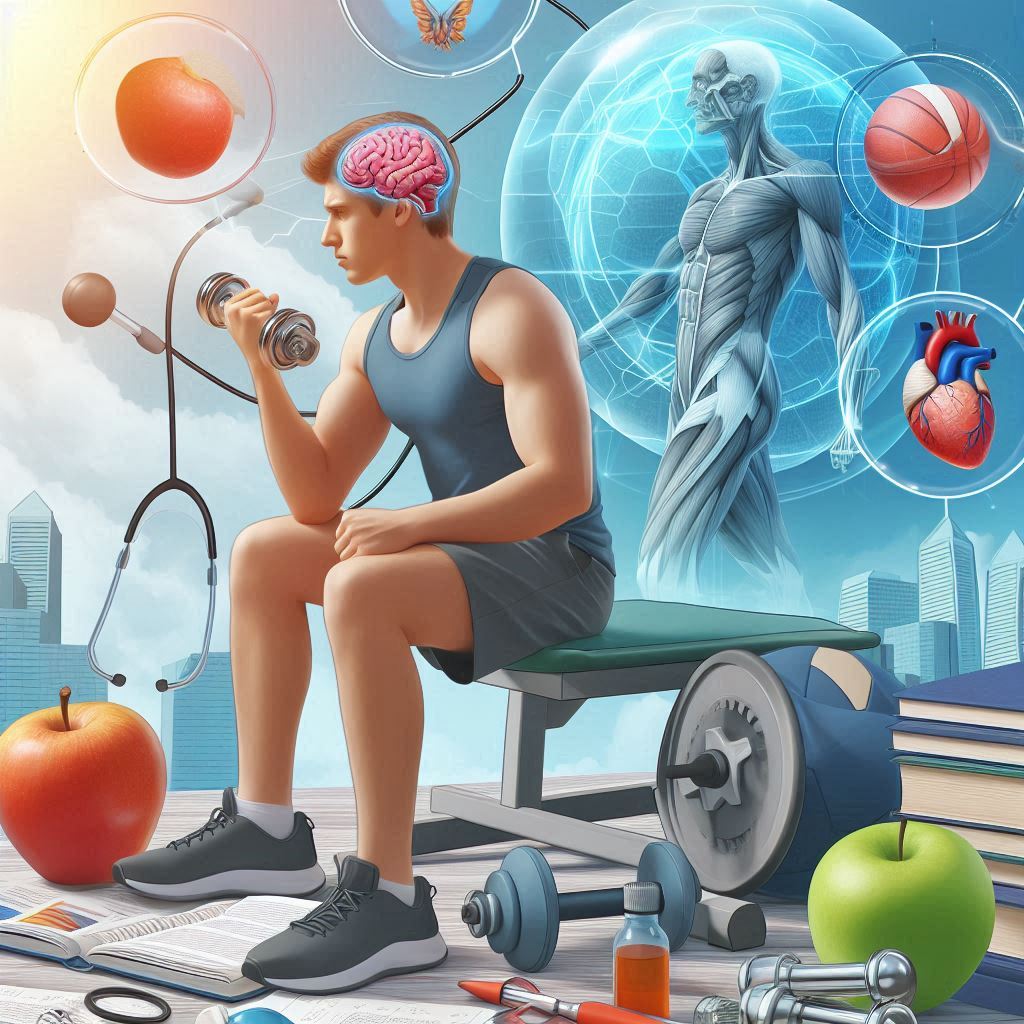
The Role of Physical Fitness in Stress Reduction: Finding Relief Through Movement
One of the most effective ways to reduce stress is through physical activity. Exercise has long been associated with improved mood, relaxation, and stress management. Different forms of physical activity, from calming yoga to high-intensity running, can promote relaxation, elevate mood, and help the body cope with stress more effectively.

How Fitness Can Boost Self-Esteem and Improve Body Image
Self-esteem and body image are closely connected to how individuals perceive their worth and physical appearance. Low self-esteem often manifests as a negative self-image, which can affect an individual’s confidence and mental health.
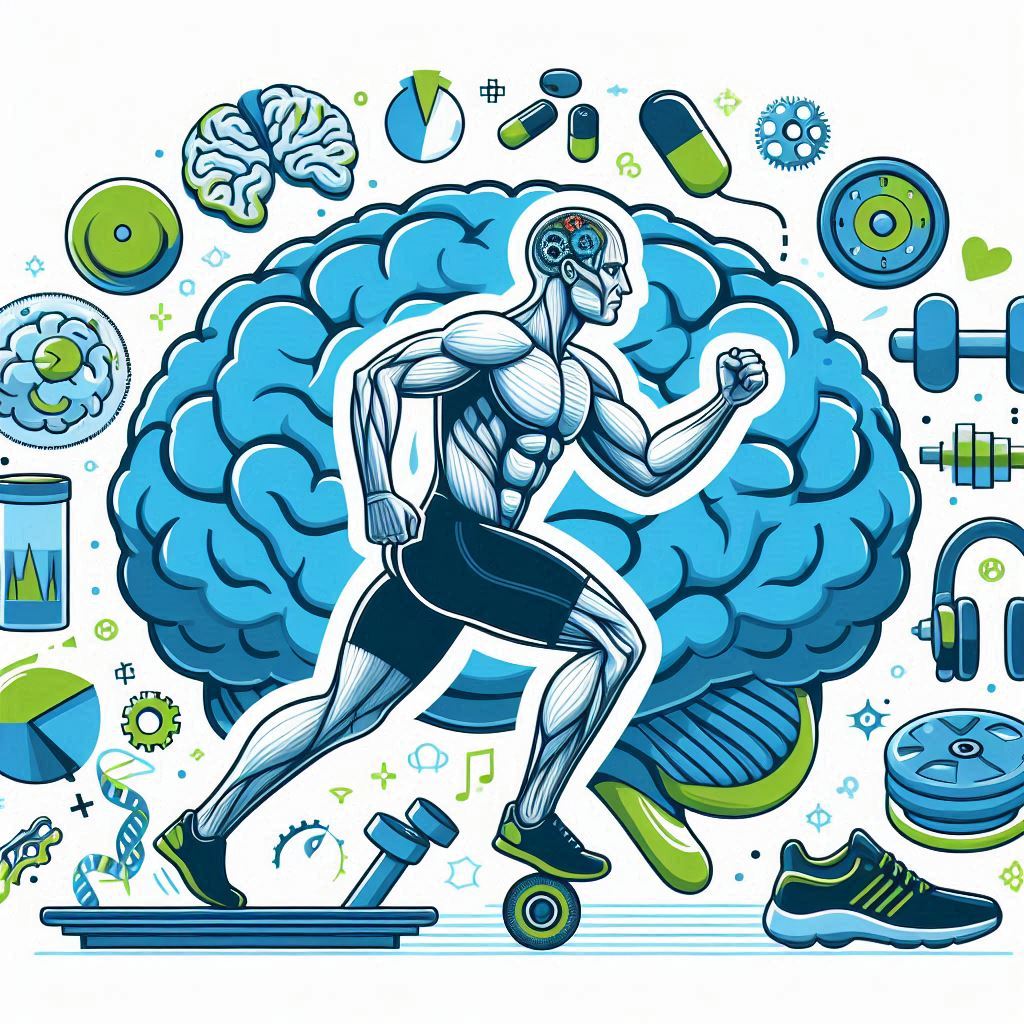
Fitness and Mental Clarity: How Physical Activity Enhances Cognitive Function
The ability to concentrate, remember information, and think critically is not only essential for day-to-day tasks but is also a significant factor in emotional well-being. Cognitive health is closely tied to physical health, and a growing body of research suggests that regular physical activity can enhance brain function in profound ways.
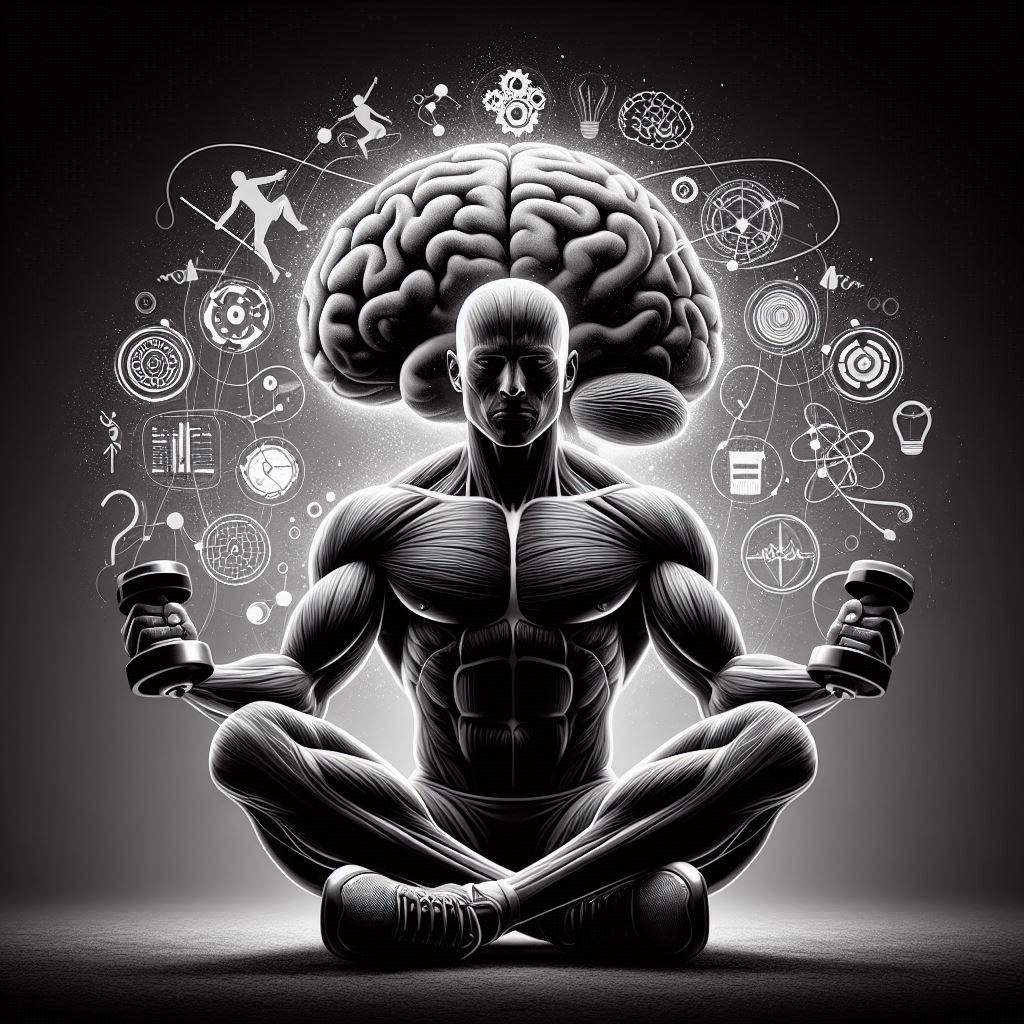
Yoga and Meditation: Combining Fitness and Mindfulness for Mental Health
In a world where mental health issues are becoming more prevalent, people are increasingly seeking ways to integrate holistic approaches to wellness. Yoga and meditation, long celebrated in traditional wellness practices, have gained modern recognition as powerful tools for improving mental health.
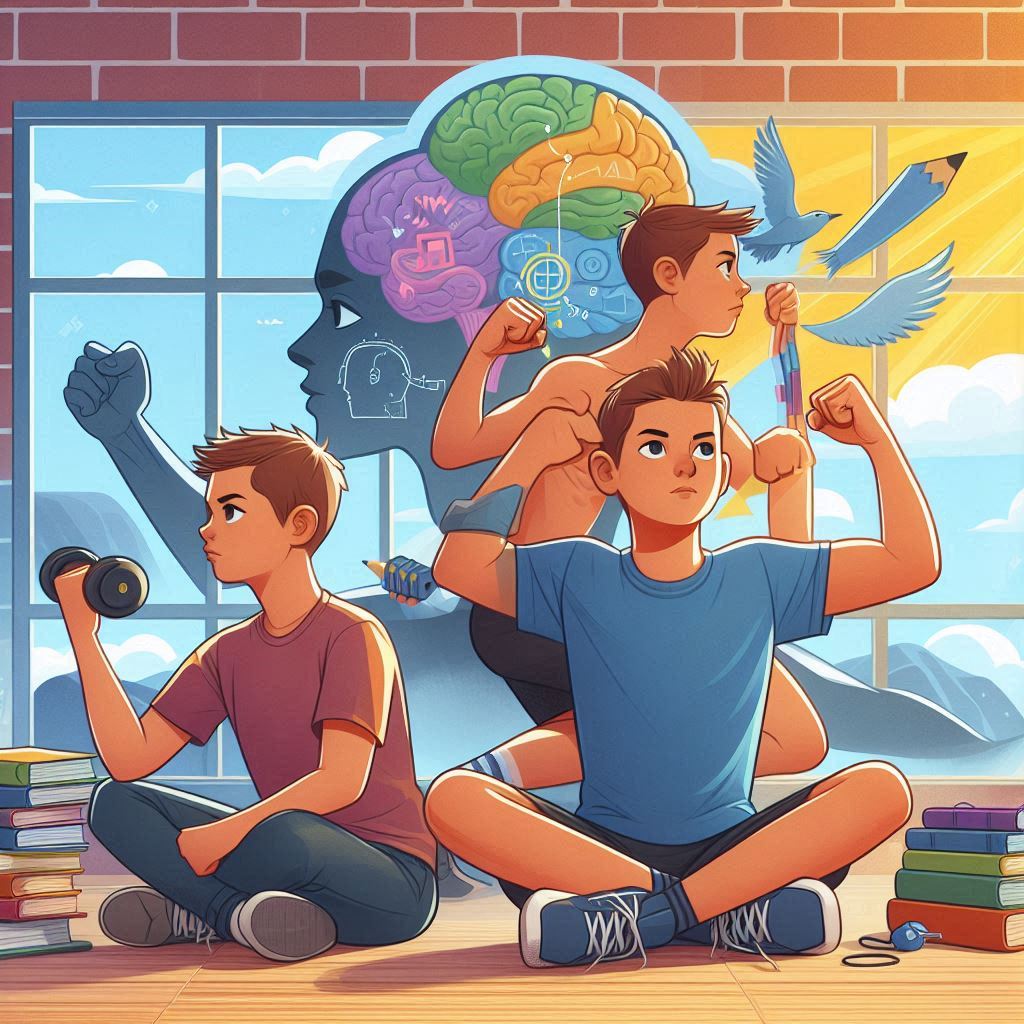
Fitness for Kids: Building Resilience and Mental Strength Through Physical Activity
While many parents, educators, and pediatricians emphasize the importance of physical fitness for the development of a child’s body—strengthening bones, muscles, and cardiovascular health—there is increasing recognition of the profound impact exercise has on children’s mental health.

The Impact of Outdoor Exercise on Mental Health: Reconnecting with Nature
As the world continues to face the stresses of modern life—such as work pressure, social media distractions, and environmental concerns—the need for practices that promote mental well-being has never been more urgent. One such practice is outdoor exercise, a simple yet profound way to enhance both physical and mental health.

Fitness for Managing PTSD and Trauma: A Holistic Approach to Healing
Physical exercise has been found to be a powerful tool in managing stress, improving mood, reducing symptoms of anxiety and depression, and enhancing overall well-being. This article explores the ways in which fitness and physical activity can support individuals in managing PTSD and trauma, with an emphasis on specific exercises, programs, and holistic approaches to healing.
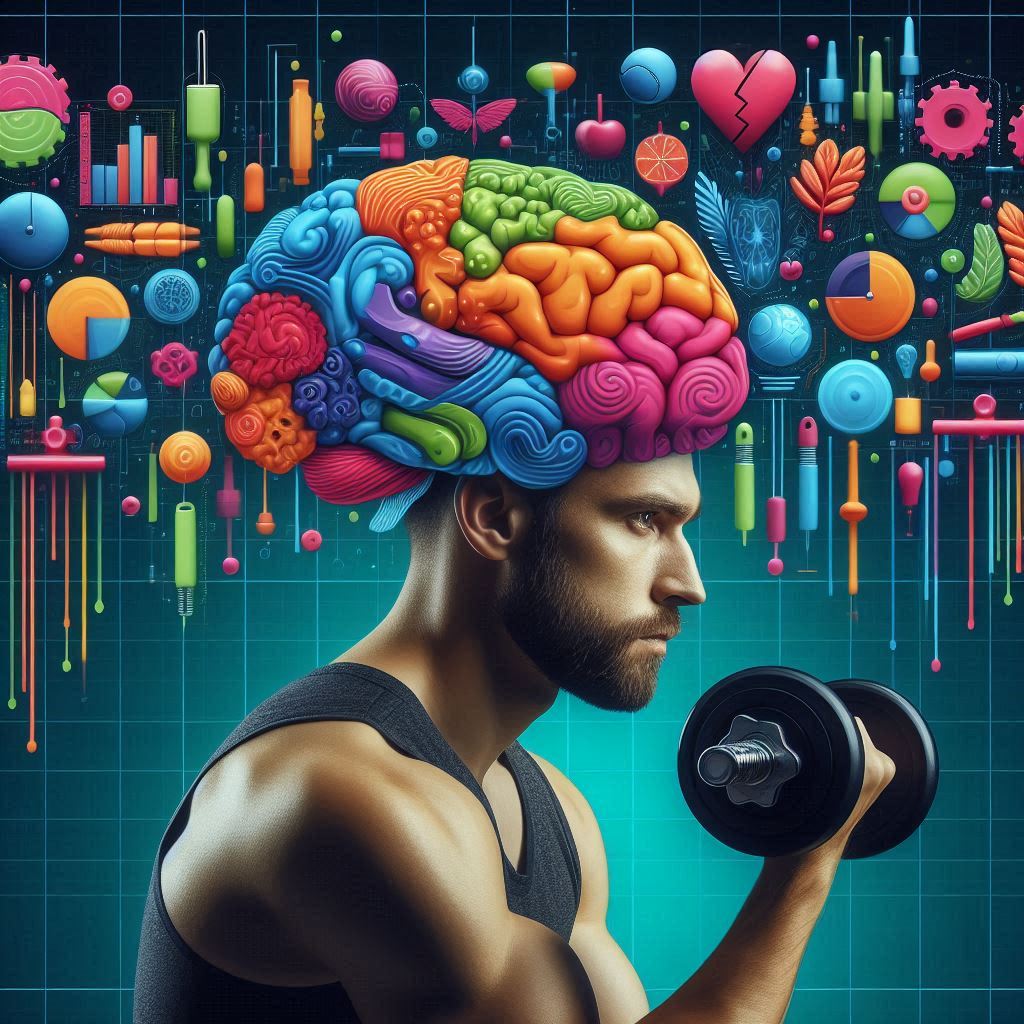
How Consistency in Fitness Can Create Long-Term Mental Health Benefits
Regular physical activity is widely recognized for its ability to improve physical health, but increasingly, research is highlighting the significant mental health benefits that come with maintaining consistent exercise routines.

How Consistency in Fitness Can Create Long-Term Mental Health Benefits
The importance of physical exercise in promoting overall health is well-established. However, its effects on mental health—specifically the long-term mental health benefits—are often underappreciated. Research has shown that consistent physical activity is not just about enhancing cardiovascular health, building muscle, or improving endurance.
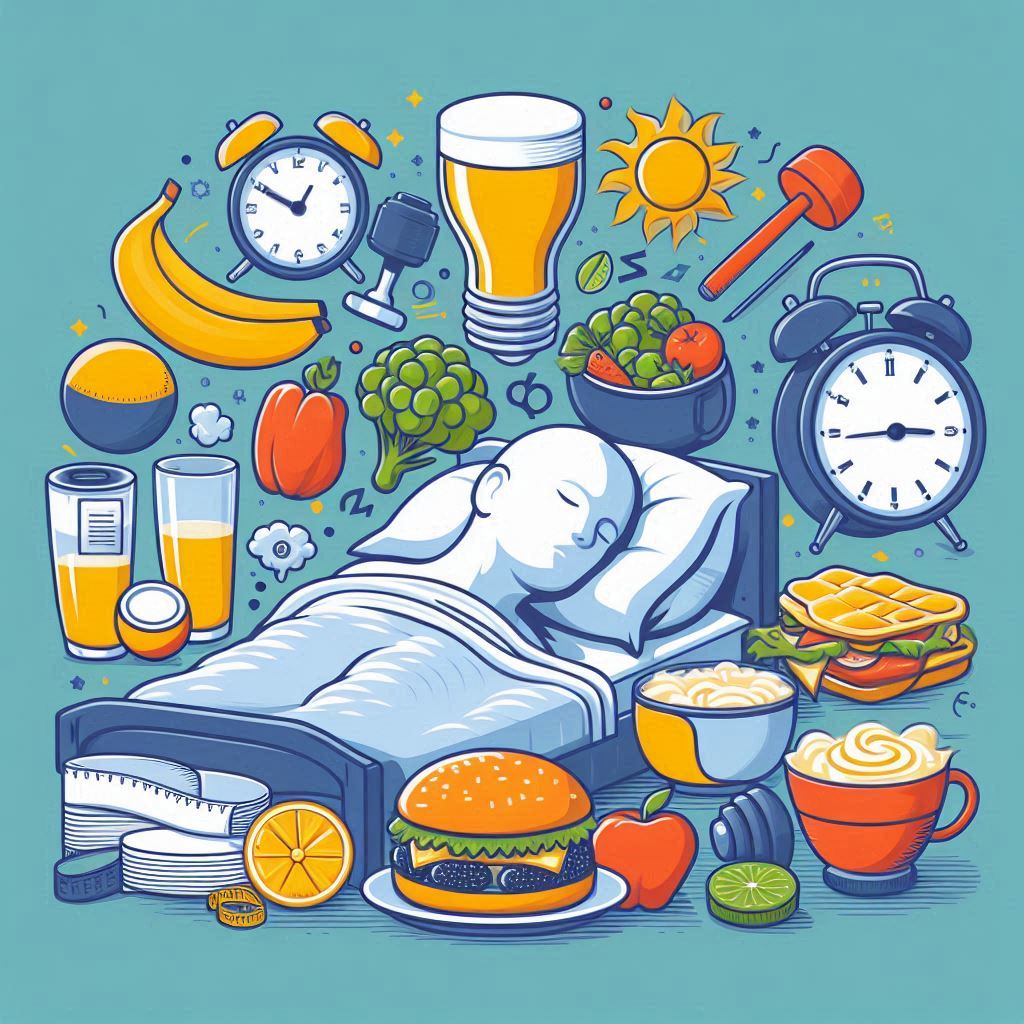
The Role of Sleep, Diet, and Fitness in Mental Well-Being
Mental well-being is an essential aspect of our overall health, influencing how we think, feel, and act in everyday life. A balanced lifestyle that includes good sleep, proper nutrition, and regular physical activity is fundamental to maintaining and improving mental health.

Fitness as a Coping Mechanism for Burnout and Work-Related Stress
Stressors can manifest in both mental and physical forms, leading to decreased productivity, physical health problems, and emotional fatigue. If left unaddressed, chronic stress and burnout can lead to severe health consequences, such as anxiety, depression, and cardiovascular issues.

Breaking the Stigma: How Mental Health and Fitness Can Go Hand-in-Hand
Despite the growing understanding of mental health and the increasing openness around it, the stigma still surrounding mental health and fitness continues to prevent many from seeking help. The division between mental and physical health creates a problematic narrative where people feel they must choose between taking care of one or the other, neglecting the fact that they are interconnected.